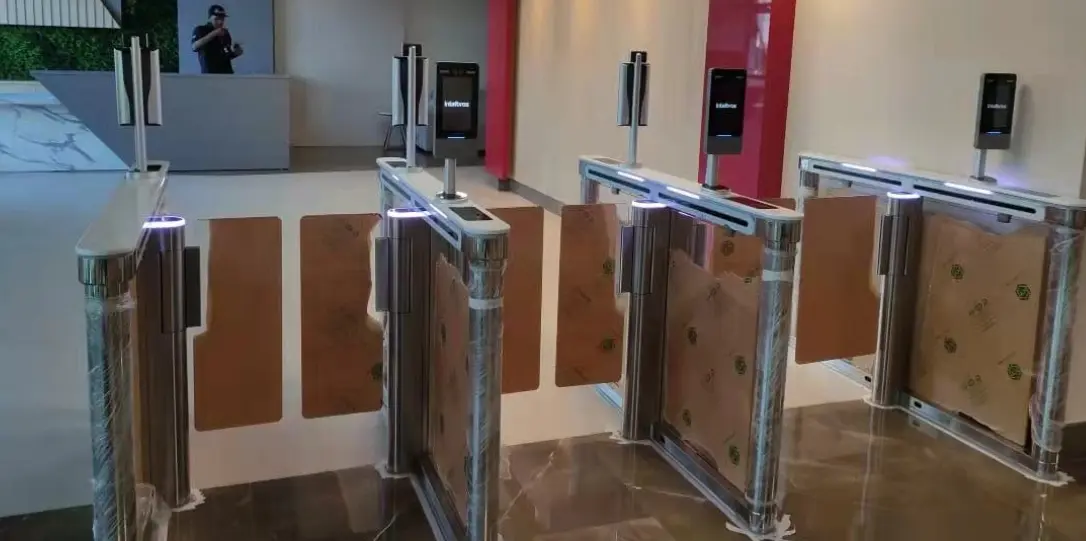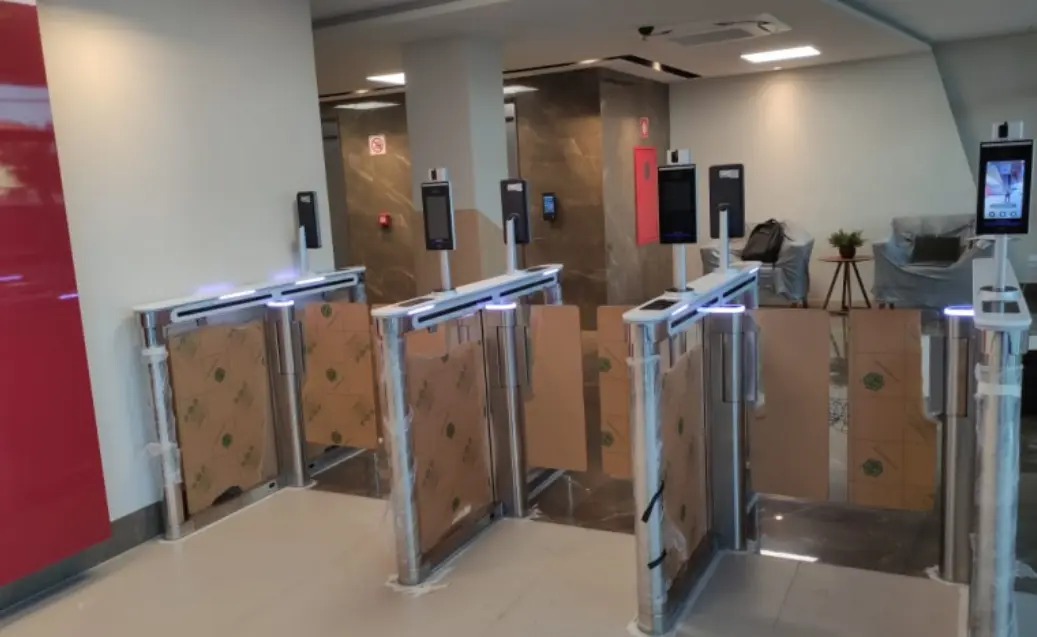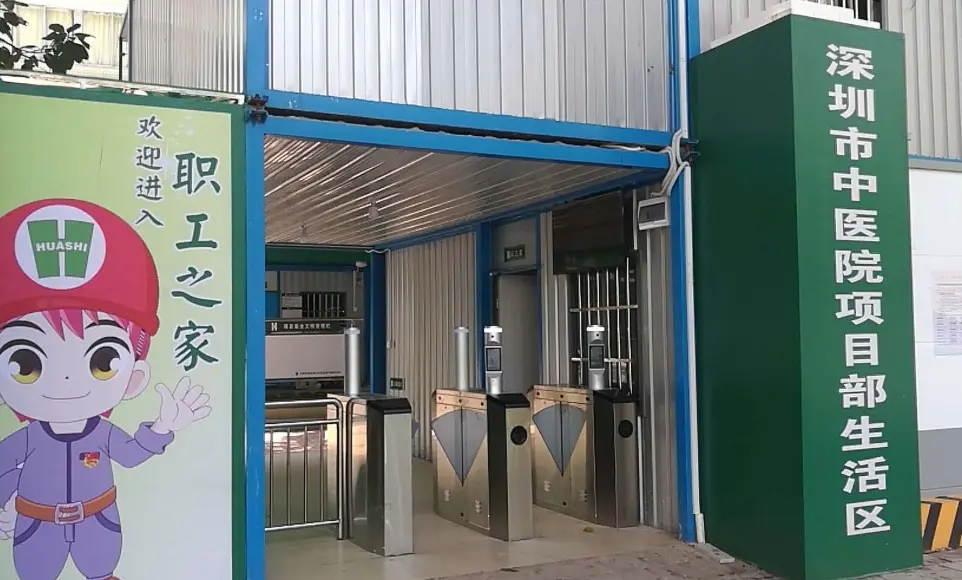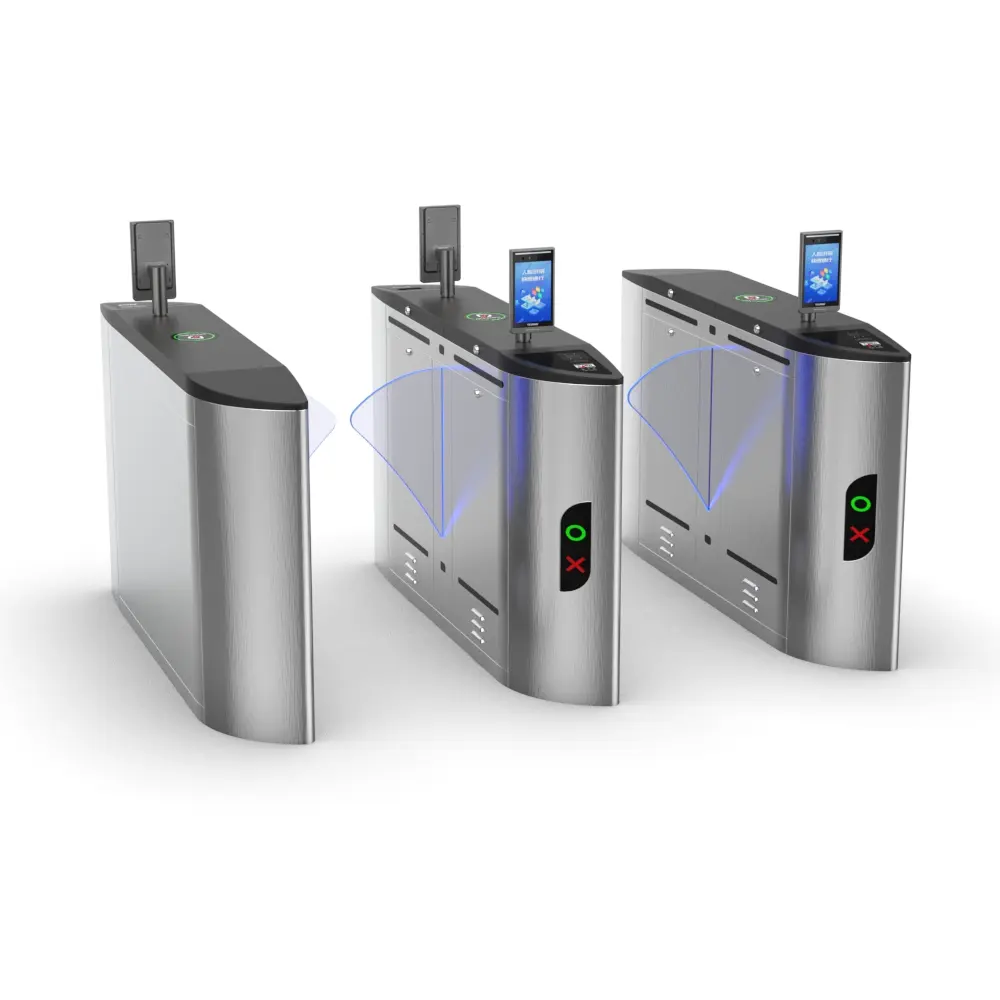The São Paulo hospital in Brazil has implemented turnstile gates from the Chinese manufacturer JJR to ensure secure access.

Turnstile Gate Specifications:
- Smart Speed Gate: B307A
- Material: Da Yang plate snowflake sand, thickness 1.5mm
- Dimensions: 1500120980mm
- Infrared pairs: 8 pairs
- Passing Speed: 35 people/minute
- Passage Width: 600mm
- Motor: Brushless Servo, Gate Opening Speed: 0.2S

Project Background:
The access management system for medical staff and patients at the São Paulo hospital in Brazil aims to efficiently control and manage entry and exit, ensuring internal safety, order, and sanitation, while also providing high-quality medical services.
1. Medical Staff Identity Verification: Strict measures are introduced to ensure only authorized medical personnel can enter the hospital. This includes:
- Medical Staff ID Card: Issuance of ID cards containing personal information and photos, which staff use for identity verification.
- Biometric Technology: Use of biometric technology (e.g., fingerprint or facial recognition) to verify medical staff identity.
2. Medical Equipment Inspection: Medical equipment checkpoints at hospital entrances to ensure staff do not bring unauthorized medical devices into the hospital.
3. Hospital Maps and Navigation: Provision of hospital maps and navigation systems to help medical staff and patients find their destinations quickly.
4. Visitor Management System: For relatives of patients and other visitors, a visitor registration system and visitor passes are required.
5. Patient Identity Verification: Verification of patient identity through methods such as patient ID cards or biometric technology.
6. Data Privacy Protection: Enhanced privacy measures for medical data to ensure the security and compliance of patient personal information.
7. Emergency Response Plan: An emergency response plan, including evacuation plans and emergency notification systems, to ensure the safety of both staff and patients.
8. Health and Safety Standards: Adherence to hospital hygiene and safety standards, particularly in infection control, waste management, and cleanliness, to ensure the health and safety of both patients and medical staff.
9. Patient Education: Provision of information on hospital rules, services, and safety requirements to patients and their families to raise awareness of safety.
10. Mobile Application Services: A hospital mobile app that allows patients to find doctors, make appointments, access medical reports, and gather hospital information.
These measures help ensure secure and orderly access for medical staff and patients at São Paulo Hospital, while maintaining high-quality healthcare services.
Project Pain Points and Turnstile Solutions:
Goal: Improve the efficiency and security of access management for medical staff and patients at São Paulo Hospital, Brazil.
1. Medical Staff Identity Verification: Introduction of an electronic identity verification system, where medical staff must use ID cards or biometric technology (e.g., fingerprint or facial recognition) for access to the hospital.
2. Medical Equipment Inspection: Medical equipment checkpoints at the hospital entrance to ensure that unauthorized medical equipment is not brought in by medical staff.
3. Hospital Maps and Navigation: Provision of hospital maps and navigation systems to help medical staff and patients find their destinations quickly.
4. Visitor Management System: Visitors, including patients' relatives, are required to register and receive visitor passes.
5. Patient Identity Verification: Verification of patient identity through hospital-provided methods, such as patient ID cards or biometric technology.
6. Access Records and Reports: Recording the entry and exit times of medical staff and patients, with reports generated for hospital management to monitor access.
7. Data Privacy Protection: Strengthened privacy protection for medical data to ensure the safety and compliance of patient information.
8. Emergency Response Plan: Establishment of emergency plans, including evacuation procedures and emergency notification systems, to ensure internal and patient safety.
9. Mobile Application Services: Provision of a hospital mobile app that allows patients to search for doctors, schedule consultations, access medical reports, and find hospital information.
10. Patient Education: Providing information about hospital rules, services, and safety requirements to improve patients' safety awareness.
This intelligent turnstile solution will improve the efficiency and security of access management for medical staff and patients at São Paulo Hospital in Brazil, reduce waiting times at entrances, provide more convenient services and choices, and enhance hospital safety and healthcare service quality.







